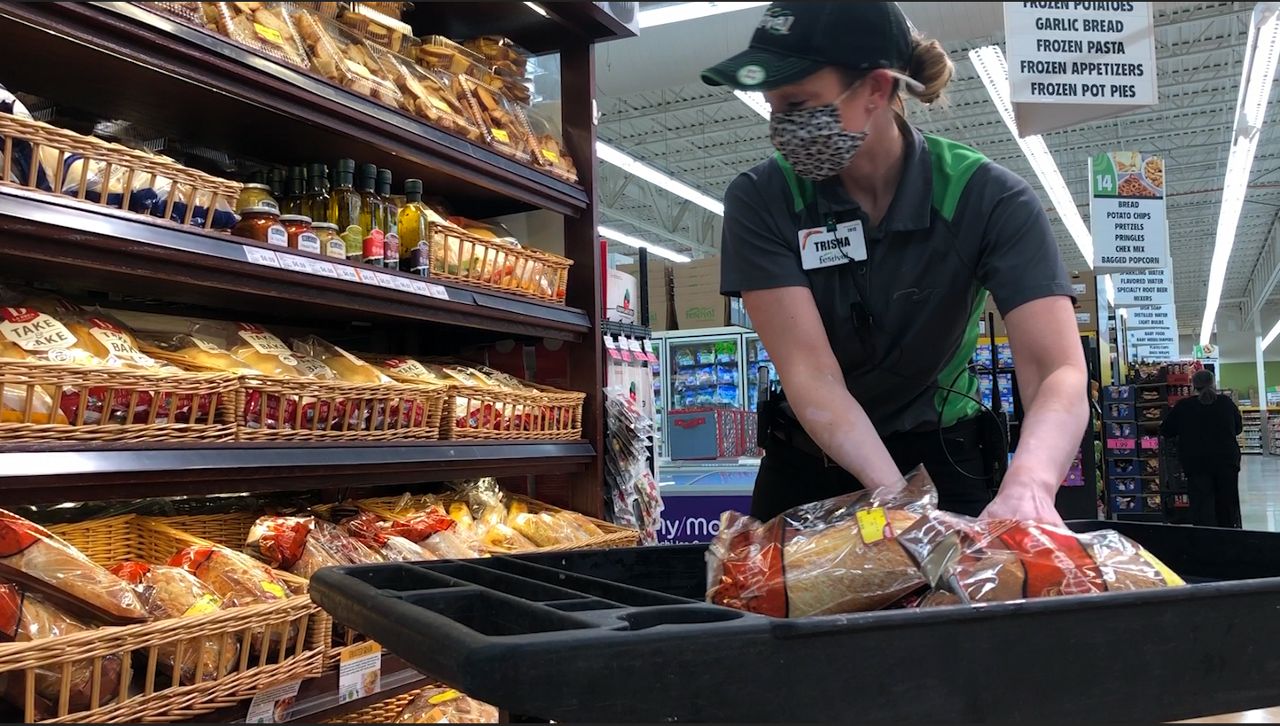DE PERE, Wis. — Andrew Robbins can pinpoint the day and time the COVID-19 pandemic hit home.
It was the afternoon of March 12, 2020.
“I came down off of lunch and all of a sudden the lines backed up. And all of a sudden the paper aisle, toilet paper is flying out the door,” he said. “We all kind of looked at each other like, ‘This is happening. This is big time.’ Then, the next day, it didn’t stop.”
Robbins is the assistant store director at Festival Foods in De Pere. Over the coming weeks and months he, and grocery workers around the nation and world, were at the epicenter of the pandemic. Shoppers flooded stores seeking essentials like toilet paper and food as the world headed into the unknown.
Grocery workers were looked at in a new light by the communities they had been quietly serving all those years.
“When people were thanking us, I think that’s when it kind of started setting in, ‘Hey, I think we’re in this a lot more than we give ourselves credit for,’” Robbins said.
As lockdowns and business shutdowns kicked in, Festival Foods and other grocery stores hired people who had been laid off. It was a bridge for both parties: grocery stores had staff to help with a massive influx of business — and people in need of a job now had one.
“It was crazy having to bring in so many people, temporary associates, which we’d never done before as a company,” said Sarah Villenauve, Human Resources manager and market lead at the De Pere store. “But our community came together, so when they were laid off they came here to help out and have a job.”
Some of those once-temporary workers have stayed on with Festival, she said.

A year later, Darryl Gerondale — another assistant store director in De Pere — looks back on staff efforts with awe.
“We really grew together and became a cohesive group. Overcoming the challenge is where you learn a lot about people,” he said. “I’m very proud of them all and they did a great job.”
The hectic days of March 2020 have passed and business has stabilized in a more usual day-to-day pattern — at least one that’s “normal” for a global pandemic.
It gives a little time to reflect on what’s happened over the past 12 months.
“Our associates who came in and did the work — night and day, long hours — they were willing to put it in,” Robbins said. “I don’t think any of us really thought at the time we were essential, we were just trying to keep a business we love afloat, keeping it moving and keeping the guests happy.”



